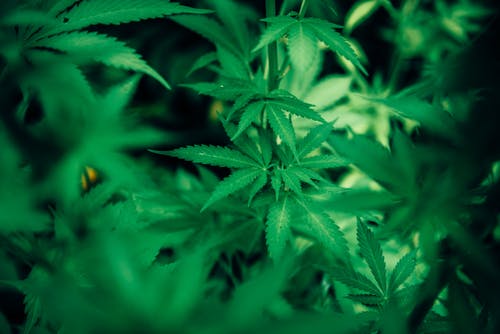Currently, 11 states have fully legalized the use of marijuana, both for medicinal and recreational use. In 2018, Michigan became the tenth state to legalize recreational marijuana, a decade after legalizing medicinal marijuana. Although marijuana has been fully legalized in Michigan, this legalization is still fairly new for the community and our government.

Since legalizing medical marijuana in 2008, we have seen changes in the laws governing and regulating medical marijuana. In 2013, a state Supreme Court decision deemed establishing dispensaries to be illegal, requiring patients to cultivate their own medicine or establish patient/caregiver relationships in order to acquire medicine. In 2016, seeing that this decision was flawed, Gov. Rick Snyder established a patient registry system for operating and regulating medical marijuana dispensaries. This also allowed the use of non-smokable cannabis (e.g., edibles and topicals) and placed restrictions on public use of marijuana, as well as driving under the influence.

There are significant differences between medical use and recreational consumption (adult-use)of marijuana, and it is important to understand these differences for legal and medical purposes. Medicinal marijuana is prescribed to treat specific medical conditions and psychological disorders as well as the accompanying symptoms. Recreational cannabis is intended to alter the user’s state of consciousness. Basically, the recreational user seeks to achieve an improved or enlightened state of mind, whereas the medicinal user is treating a neurotransmitter imbalance hindering their ability to function normally.

When marijuana is legal, both medicinally and recreationally, it may seem unnecessary, or even pointless, to obtain a valid medical marijuana card. But this may be a faulty assumption, especially if you have a medical need and are financially able to obtain your card.
Let’s assume that you are using marijuana for the sole purpose of treating a medical condition and are doing so without a valid medical marijuana card. Although you are using marijuana medicinally, from a legal standpoint you are using recreationally. Therefore, it is necessary to understand the legal and medical implications for using recreationally versus medicinally.

There are advantages to having your medical marijuana card. This card ensures that you are legally compliant (at least at the state level since federal legality is nonexistent). A valid medical marijuana card, presented with another form of state-issued ID (e.g., driver’s license), can protect you from arrest under Michigan law.
Recreational use laws in Michigan require users to be at least 21 years of age. But the legal age of use is 18 years of age for medical marijuana cardholders.
Although recreational use is legal, it is not always possible to “legally” obtain marijuana. Most currently operating dispensaries in Michigan were established for medical patients and primarily cater to cardholders. Most Michigan counties, with the exception of Ann Arbor, are resistant to marijuana dispensaries providing recreational marijuana within their communities. Yet, there are dispensaries in other locales that cater to both medical marijuana patients as well as recreational cannabis users. However, this is not the case with most established dispensaries, especially in Michigan. Therefore, recreational users are limited as to where they may purchase their cannabis.
Possessing a valid medical marijuana card means that your medical marijuana is doctor-prescribed and you can shop anywhere! This means that you meet the criteria and have a medical need to treat a specific condition.

There are some considerable differences between medical and recreational, or adult-use, dispensaries. Typically, medical dispensaries are medical-only shops reserved exclusively for patients. Similar to most clinics and doctor’s offices, they are complete with medically licensed professionals who meet privately with patients. These experts can legally recommend particular strains for specific symptoms and/or conditions.
Medical-grade cannabis is often cultivated with higher CBD ratios (therapeutic effects) as opposed to higher levels of THC (psychoactive effects). Medical cannabis is often intended to treat underlying symptoms of specific medical conditions, not to induce a high. Although recreational users may purchase the same strains as card holders, medical-grade cannabis may not provide the effects a recreational user seeks.
Cardholders are also entitled to certain perks, including shorter lines and less wait times. Cannabis strains with higher THC levels are often reserved for cardholders. But, most significantly, cardholders will pay lower costs.
Medical dispensaries are regulated and taxed differently than adult-use dispensaries. Medical dispensaries charge patients a 3% tax rate in addition to the state’s 6% sales tax whereas adult-use dispensaries have an excise tax of anywhere between 10% and 15% in addition to the state’s 6% sales tax.
These high taxes ensure that recreational marijuana will be more expensive than medical cannabis and that patients will pay less than recreational users. The hope is that access to marijuana will be easier and cheaper for cardholders.

A medical marijuana card allows qualifying patients legal access to medical marijuana. From both a medical and legal perspective, obtaining your medical marijuana card is the best option, especially if you have a recognized medical need and the financial ability to pay the cardholder fee. Because there are many more benefits to being a valid cardholder as opposed to merely using on a recreational level. Therefore, I would highly recommend obtaining your medical marijuana card.


Hello! Someone in my Facebook group shared this website with us so
I came to take a look. I’m definitely enjoying the information. I’m book-marking and will be tweeting this to my followers!
Exceptional blog and brilliant style and design.
Thank you very much! We always appreciate feedback. Our #1 goal is to provide our readers with relevant cannabis information.